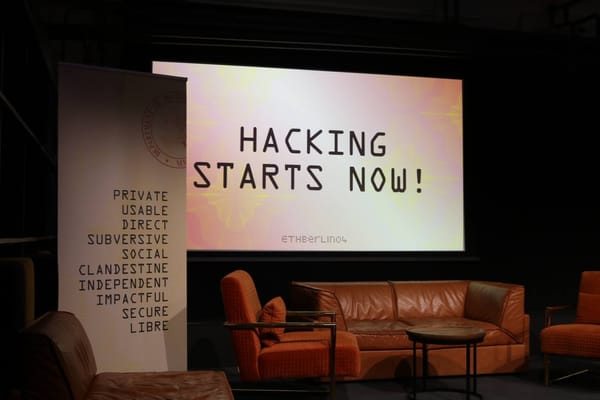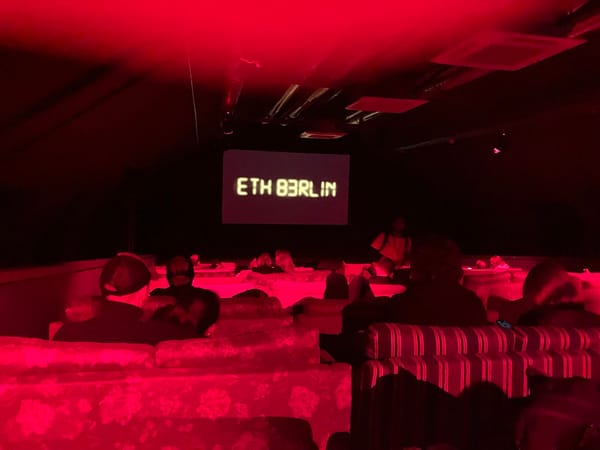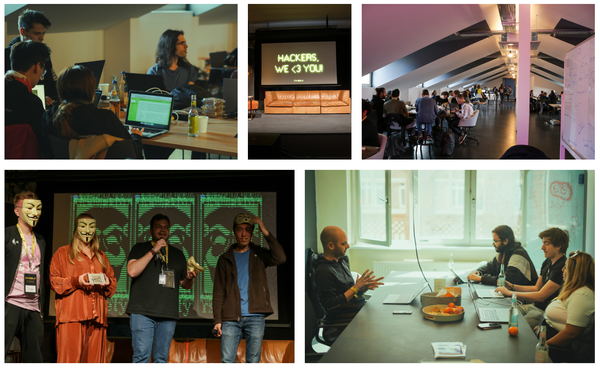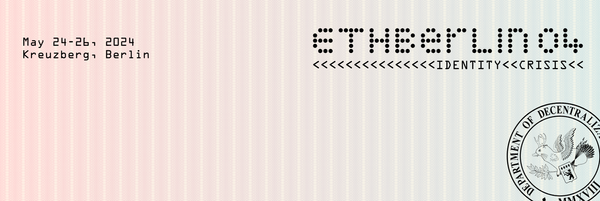Diffusion 2019: our favourite projects & highlights
Hey DoDers! Apologies for the belated post, it’s been busy here at the Decentralization HQ (ironic joke). We were at Diffusion 2019, the…
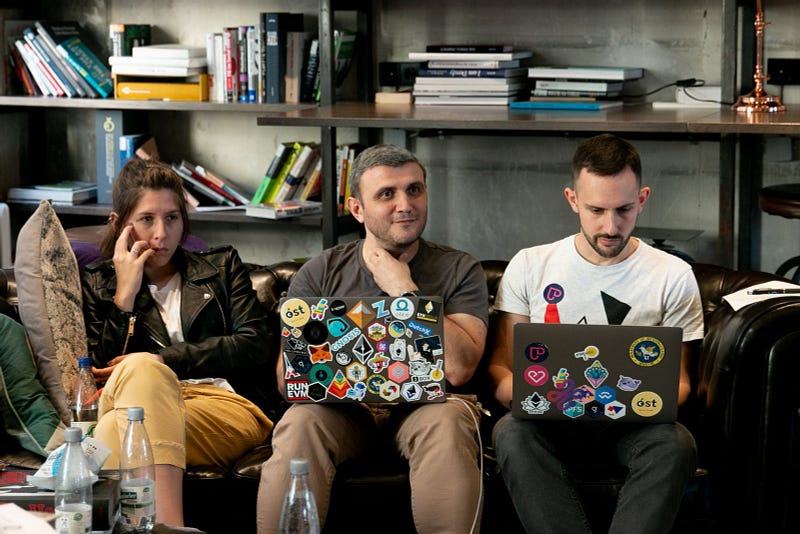
Hey DoDers! Apologies for the belated post, it’s been busy here at the Decentralization HQ (ironic joke). We were at Diffusion 2019, the hackathon organised by Outlier Ventures, and now we’re beginning to plan 2020.
There is a lot happening in the decentralised ecosystem and Diffusion proved that the Berlin hacking scene is more alive than ever. Hackers clearly couldn’t get enough with the very intense ETHBerlin and come back for more. Our alumni took the big Diffusion challenge, and excelled at it! We also had the chance to meet new hackers from completely different backgrounds, and that made the experience exceptional.
Diffusion proposed to hack on the Convergence Stack — technologies that will be essential for the future, and that various projects and companies in the decentralised ecosystem are building now. The Department of Decentralization, as you might know, born from ETHBerlin, which at first was focused on Ethereum, however, our decision is to remain agnostic and our philosophy therefore, aligned with Outlier Ventures.
TLDR: Build whatever you want, with the technology you like, as long as it’s open-source, decentralised and awesome.
For Diffusion, knowing that the approach would be agnostic we focused on several bounties we mentioned in our previous post, and our members now shifted from hackathon organisers to judges. Here are our top picks, and the winners! — thing is that we had a lot of favourites, but only 4 prizes to give (Outlier Ventures can testify we were the judging table to take the longest on making a decision — it might or might not have gotten ugly, and some of us might or might not be on speaking terms still):
DeFi Category:
WINNER — $DAIDaddy: meme driven development for the win. This project was awesome on so many levels. Firstly the concept, secondly the problem they solve, and finally the consistency of this team. They went from winning ETHBerlin with Cherry Swap, another awesome DeFi project, and jumped right into a new challenge — and won again.

We asked them, “What is $DAIDaddy?”:
“14% of all CDPs have been forcibly liquidated. When this happens, the ETH is sold at a 3% discount and the poor user is hit with a whopping 13% liquidation penalty. A lot of users end up leveraging themselves to the teeth and put themselves in risky positions with ETH markets crash or can just find themselves in a position where they don’t have enough cash to close their CDP despite their position still being deemed ‘safe’. We asked ourselves, how can we help these people close their CDPs without paying hefty fees.
So, we created a state-of-the-art autonomous open-source platform for buying and selling collateralized debt positions.
Introducing… DaiDaddy, a platform for CDP owners to find generous benefactors to buy their debt from them and save themselves from being forcibly liquidated.
Users can sell their CDPs with an applied discount less than the cost of liquidation. They save themselves from hefty fees and DaiDaddies can pick up some nicely discounted ETH.”
CHECK THE PROJECT and $DAIDaddy V2 is also here, for the Kyber hackathon!
DoD PICK — TriggeredX:

Another ETHBerlin Community team, the guys behind TriggeredX are grantees from the Gnosis Ecosystem Fund with their project Gelato. We loved this project because it puts ERC-20 in the spotlight, and automates trading (which for non-traders who are a little bit lazy to check the market like us, is a killer feature)
What is TriggeredX?:
“Our application enables cross token conditional limit orders, stop losses, etc for ERC20 tokens on decentralized exchanges. Users can define a pre-defined condition like if Price of ETH => 200 DAI and then conduct a completely different action such as sell WBTC for ETH on Kyber. Rather than having to monitor changing market conditions continuously, users can simply mint an execution claim and have a network of relayers execute the transaction on the user’s behalf in the future. Built on the Gelato protocol.”
Check their DEVPOST.
UX Category:
WINNER — ID.Earth:
Johann, Keno, Julian and Simon did a fabulous job merging a “blockchain for good” project with FOAM’s proof-of-location, Status’ Keycard (and running on top of our own Görli Testnet). The problem they solved is very important to activist groups: how do you know you are surrounded by trusted people, that belong to the organization? How can you identify people without compromising their anonymity, essential for activist groups in zones where it might not be safe to protest?
In their own words:
“What we strive to develop is a tool we can give those willing to change the world. A toolset built from the ground up through a network for unique personhood. Unique Personhood allows for democratic principles to be applied to organizations. At the basis is a physical element — the keycard. The keycard is a chipcard hardware wallet that mimics the credit card tap-and-pay UX.
Keys are an element which have a history of giving access. We want to make our experience special, to give movements a form of organization which truly combines with the way the originate and spread. Through friends and acquaintances, through talks and trust. Keycards are inexpensive and sturdy, the distribution can easily be controlled.
We used Status smartcards to give users a private wallet without them having to know what that means. New users get a keycard from a friend and are verified through two existing members of our database of real humans. These verify a new member in person.”
Libp2p prize:
WINNER (BUT WE CHANGED CATEGORY): Carbon Credits Club

Originally we were going to award a prize for the libp2p devgrants we started at ETHBerlin. However, halfway through Diffusion, we realised there was a high number of people building “blockchain for good” solutions, and there was one that was solving something we started working on through our art show at DEVCON5, Crypto Grows On Trees.
We wanted to work on a carbon credits calculator, payable with crypto, and by surprise, we bumped into the creators of Wildcards, that on this occasion, built Carbon Credits Club — exactly what we were after. Therefore, we decided to put protocol-level stuff on hold, to focus on our planet. All efforts, no matter how small they are, count. So we are confident we made the right choice :)
We’ll be reporting on Carbon Credits Club in a new post, connected to Crypto Grows on Trees, so we’ll leave this review in suspense…
Check the project: https://devpost.com/software/assetnomics
Our special mention:
THE COOLEST HACKERS OF ALL TIME :) — Stefan, Jean Daniel, Sebastian, Hendrik and Sascha (Turbine Kreuzberg)
Team Meeting Project:
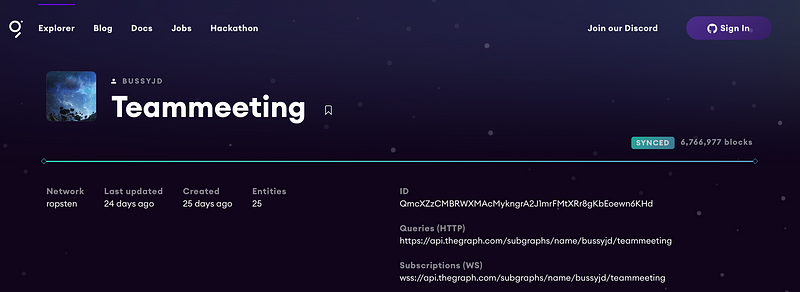
Back when Diffusion happened, the crypto community was faced with the meetup.com fee raise, and of course, hackers got to work.
Team Meeting is a plugin (which we love) for meetup.com that aims to be fully decentralized. While it is still work in progress, we loved it so much we are considering to use it for Drei (ETHBerlin 2020) or any other crazy event we may come up with.
This is what the plugin does: “Every platform in the event space orbits around their “RSVP”, “Join” or “buy ticket” buttons. Each event has its own canonical webpage and thankfully many platforms have added schema.org compatible microdata annotations to their contents. We “trust” that data to avoid building our own event management database / crud app. Instead we’re hijacking their “RSVP” buttons: our browser plugin identifies pages that represent a schema.org event and offers a user another rsvp to that event on chain. The plugin extracts schema.org definitions, pushes them onto IPFS and redirects the user to a browser only app where she can put her RSVP on the ledger (since we cannot cross-communicate with Metamask). Event hosts can discover (future: claim) their event and avoid any boarding costs by the platforms. A dedicated “wallet” Đapp displays all events that a user has signed up for.”
Also — Stefan wrote a progress report, which you should check HERE
Devpost here: https://devpost.com/software/team-meeting
There were many other teams that we really liked, but we’re writing a blogpost, not a book. So we could only choose a few. We are following up with all these projects and will try to contribute in any way possible to their growth.
Thank you, Outlier Ventures, for the opportunity!

